Learning plateaus occur during learning, and learning progress stagnates at times. The learning progress does not increase and is almost at the same level for a certain time.
Learning plateaus occur when we learn something new: how to play a musical instrument, ski, or learn a language.
Learning plateaus usually happen when individual elements are combined into a large block in the brain. It is also known as automation. This way, the brain creates new simplified structures. Those structures are crucial for further learning progress. If a person goes on learning during this time, learning will not be efficient. It is recommended that you should schedule short learning breaks.
4 Stages of the Plateau
Psychologists Paul Fitts and Michael Posner found out that each time we acquire a new skill, we usually go through four stages:
Stage 1 – Initial or Growth Stage
This first stage is marked by the beginning of learning. When a person starts learning something, the motivation is high, and the results are visible and can be seen quickly. At this stage, we tend to make lots of mistakes, yet the success in learning is visible, and there is a great feeling of progress.
Stage 2 – Slowing Down the Learning
At this stage, we can see how learning slows down. We tend to make fewer mistakes. Also, we have enough knowledge in learning. For example, if we talk about learning a new language, at this stage, we have enough knowledge to communicate when we speak or write. In addition, we know enough words, and our vocabulary is not poor.
Stage 3 – Plateau Stage
In the 3rd stage, learners do not longer have better or worse results. The results stabilize.
Sometimes, learners feel as if they hit a wall or they cannot see any progress.
At this stage, some people usually give up learning.
Stage 4 – Growth and Deepening
This stage is also called autonomous. In the last stage, learners grow and deepen their knowledge. A learner is focused on more specific concepts. The learning curve is always the same. However, they can be represented in different ways because all learners learn differently because no two brains are alike.
During this stage, language learners do not need to think consciously about what they are going to say, which grammar tenses to use, etc. Language production happens automatically.
Just think about your mother tongue. You speak fluently. You do not think of the right sound of a word or which words to use. No. It happens automatically as you have learned the language sufficiently.
What is Intermediate Plateau
Intermediate Plateau is also often called B2 Plateau. That’s the same plateau but with language learners when they reach B1 (intermediate) or B2 (upper-intermediate) levels on the CEFR framework.
Why a Learning Plateau Occurs and How to Overcome It
There are different reasons why a learning plateau occurs. Let’s have a look at them.
Learning Goals were Set Poorly
Poor goals might cause problems, create difficulties, decrease motivation, etc. At the same time, good goals bring you to success faster. When we set poor learning goals, we are more likely to fail and lose interest in learning.
In order not to reach Intermediate Plateau, we should set clear goals. To do so, you may want to use the SMART technique. SMART stands for Specific, Measurable, Achievable, Relevant, and Time-Bound.
The key is shifting the focus from results to processes. “Fluency,” however you describe it, is a result. The daily listening, speaking, reading, and writing practice is the process.
It’s common that when learners start a new language, they almost always do too much. Setting habits and routines is exciting, but you need to find a routine that you can absolutely do in the long term without hesitation or renegotiation. No excuses. You just do it!
Examples:
SMART Language Goal: “Converse with my parents-in-law in Spanish on New Year’s Eve.”
Keystone Habit: Listen to podcasts in the morning daily and then join a meetup in the evening.
SMART Language Goal: “Pass the C1 English Level exam by next July.”
Keystone Habit: Complete one section of the C1 test workbook every morning.
SMART Language Goal: “Hold a 20-min conversation in German with my colleagues 3 months from now.”
Keystone Habit: Practice 1 dialogue script every day during lunchtime.
If you’d like to know more about setting goals, and creating habits in learning a foreign language, we have 3 posts for you to read (post 1, post 2, post 3).
Moreover, if you’d like to receive a free printable guide with lots of tips and tricks, contact us, and we will send it to you right away!
The Goals were Met
For example, your goal was to learn a foreign language for traveling.
If your goal was to learn a foreign language for traveling and you succeeded, then … Congratulations, you’ve done it!
Boredom
It doesn’t matter how old you are and what you do. We all might get bored with anything. Bored learners can be reluctant to learn and have decreased learning motivation. A learner who experiences a learning plateau struggles to understand and memorize new information and cannot learn the way they should.
Researchers state that learners who have constant support (from teachers, partners, friends, and group mates) have got lower chances of hitting a learning plateau.
When you learn a foreign language, it is important to have people who support you.
At Verabl Bridges, our teachers will support you all the way along your learning journey.
Progress is Not Seen
Many people reach Intermediate Plateau, as they cannot see any progress.
But there is a big difference between setting goals, setting habits, and seeing them through to achievement. Some of the best resolutions and most magnificent language learning programs have failed because there is no measurement after execution.
Record
Recording your progress is extremely important when doing the work and following your language routine. On one side, it increases motivation as it confirms that you are improving. But since progress is gradual, it often feels like you are not improving at all. Progress is progress, no matter how small. Fortunately, you can use simple tools to easily compare where you are today with where you were just a few weeks ago. So as long as you keep a record of what you do every day, you will confirm if you’re making progress or not.
Examples:
Document your experience, keep a journal, or check your speaking progress stats in Verbal Bridges.
Review
The reviewing process is like a language gyroscope checking to see where you are in comparison to where you should be. So, you designed a routine with your new keystone language habit. Then you performed and recorded it. Now you have to look back and see if you did or didn’t do what you said you were going to do. The problem is that many language learners just do a lot of everything but never stop to assess how well they are doing and if what they are doing is still aligned with their language goals. It is as if they were sleepwalking in their own language journey. When comparing your performance to your language metric, you will identify a gap. This can be a small or big gap, but once you identify it, it is time to reflect on the reasons that led you to behave that way and for ways to reduce the gap.
Improve
This is part of your language journey, where constant awareness and a never-ending commitment to growth and continual improvement will catapult you forward. By getting better every day, you will achieve what before seemed impossible. Your commitment to continuous improvement is what will get you there. The slightest adjustments to your daily language routines can dramatically alter the outcomes of your language journey. I’m not talking about quantum leaps of change or a complete overhaul of your language journey. Very small, almost imperceptible adjustments can and will revolutionize your courageous language journey.
Action items:
Compose your “my recording system.” Write down a list of your language habits, and on your right, write the days of the week with boxes to tick off.
My reviewing guidelines:
My Language Wins: What went well?
My Language Losses: What went wrong?
How can I fix it:
Is the progress still aligned with my language SMART goals?
Rate your motivation from 0 to 10.
Rate your learning mood: Courageous, not so courageous, or very courageous.
If you’d like to get more action steps, contact us, and we will send you our free printable guide.
Embrace Your Plateau
Having an intermediate plateau is natural. It is very important to acknowledge and embrace it. Even with an intermediate level you can communicate and contribute to the world in more than one way. So don’t give up! You can and we believe in you!
Remember that once you have achieved your goal, you will look back and realize that all your effort was worth it.
Now you know what intermediate plateau is and have some tips to overcome it.
Have you ever felt stuck at the intermediate level? Share your experience in the comments below.
SPEAK BUILD CONTRIBUTE
Used sources:
Capdevila, N. (2023, January 12). Curva de Aprendizaje: ¿Qué es y cuáles son sus etapas? Loonfy. Retrieved February 8, 2023, from https://loonfy.com/curva-de-aprendizaje-que-es-y-cuales-son-sus-etapas/
Dicenlen. (n.d.). Meseta de aprendizaje. Dicenlen. Retrieved February 8, 2023, from https://www.dicenlen.eu/es/diccionario/entradas/meseta-aprendizaje
GKToday. (2016, April 2). Types of plateaus. GKToday. Retrieved February 8, 2023, from https://www.gktoday.in/topic/types-of-plateaus/
Hans-Peter. (2020, April 27). 9 practice ideas to overcome plateaus. Hans Peter Becker Blog. Retrieved February 8, 2023, from https://hanspeterbecker.com/9-practice-ideas-to-overcome-plateaus/
Reyna, M. (2022, December 29). Language New Year’s resolutions for 2023 (part 3). Verbal Bridges. Retrieved February 8, 2023, from https://verbalbridges.com/language-new-years-resolutions-for-2023-3/
Wikimedia Foundation. (2021, January 4). Lernplateau. Wikipedia. Retrieved February 8, 2023, from https://de.wikipedia.org/wiki/Lernplateau
Easter traditions in the USA, Germany, and Mexico
People celebrate Easter in many countries and have different traditions
6 Tips to defend your point of view in English
Standing up and defending your point of view might be
International Women’s Day
International Women's Day is celebrated every year on March 8th.






